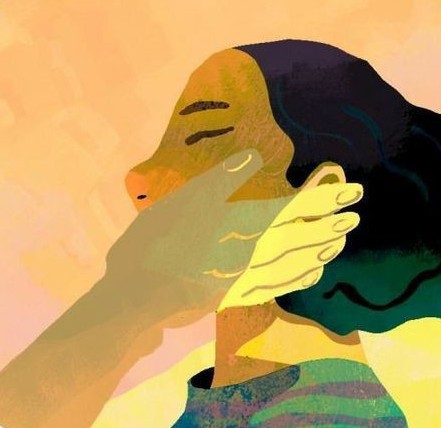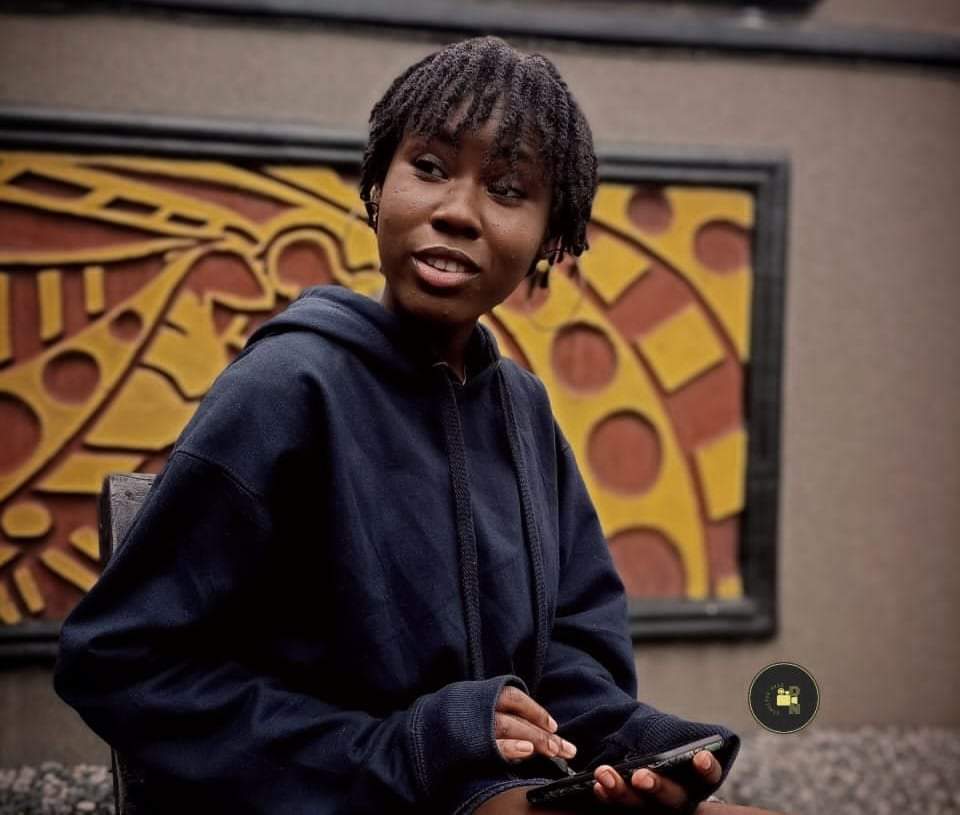Mortar
I scrubbed and combed my head very hard in the bathroom; cement had caked into small round stones on it.
Water poured freely over my aching body and as I closed my eyes, I saw the smiling faces of boys like me at the building site. The faces turned into grimaces and dirt and the only thing left was empty bags of cement on the floor.
I poured water again and relief felt like what was lying in my safe. It was a small box I still frequented when emergencies arose, I had dropped a thousand naira note in it after the day’s job. Laughter erupted from my mouth as I juxtaposed activities; going to work clean as day, and coming back like a body of walking waste.
The mason, Maxwell was a jolly youth. I enjoyed working with him. We talked about a lot of things while we worked. He had asked me why I always showed at the building site properly dressed, with a laptop bag strapped to my shoulder.
“I wear my clothes ironed oo, even if they are old, plus, my laptop is like my android now.” I said, mechanically.
He laughed.
“That is why they call you professor.” He said and I scoffed. Our faces and parts where our work rag did not cover were turning ash and white with stains of cement and dried mortar. Our work rag, soaked with water and sweat, looked almost the same as our dirty skin. Sweat would gather and disappear on our skin. Outside, I tried to lift a block, sleazily my fingers split sand particles and they sped into my eyes. It felt like pepper to have sharp sand in one’s eyes.
“What happened?” Maxwell asked; his muscles visible as he tied a yellow rope to a block. His eyes were now on the plumb, “You spent time get t ing the block.”
“Yes, I was just...sand got into my eyes.” I said, in a fash-ion that craved pity and assured him that I was not wast-ing time. We were maximizing every minute because our pay depended on how many blocks we laid.
“We’ll place at least 120 blocks today so that your money will come out” he announced, “I don’t work with time, I work with that first target.” He added, firm.
“Hmm.” I complemented and we kept busy. We talked about the education system, our studies, the corrupt gov-ernment and the upcoming elections. Most of us working at the site were students. Maxwell studies engineering at a polytechnic, I didn’t ask him whether it was civil engi-neering. I just assumed it was. We always assume things on the site. The first day on site, I found it difficult to get any task. The Engineer had assumed I was a student on I.T. because of my outfit.
Taadimma, one of the labourers on site, walked towards me like a wrecked block. His waist jolted to either side as he moved with a bucket of mortar on his head. When he had poured it into the beam, he stood still and announced, “Today my God has tried for me and I will not try him by mixing another bag.” It was his fifth bag. He had sworn when the work started, that he’d mix ten bags of cement that day.
We all paused for a split second and what followed was hard, chorused laughter.
“What? eh, Professor.” Aka, a secondary school lad who was also bringing in mortar, asked and I told him what had happened, more humorously. The whole evening, we discussed the dif f erence between soft-work, hard-work and smart-work while we cleared up. We helped each other complete tasks before nightfall. I had helped Aka to fi nish the mortar on the fl oor, packing it into a thick bucket and pouring it into a beam. The weight had fl at t ened my hair and some of the semi-solid slid through my head covering. As I tried to wash my hair, it was packed, thick with caking cement. I resolved to do a proper cleaning at home.
“You dey always come site with your laptop, you dey do yahoo?” Taadimma asked me when the Engineer had paid everyone, “I want make you teach me oo.” He con-cluded. Carrying a laptop around was associated with being fraudulent. It was not the first time Taadimma mentioned ‘Yahoo’ in my presence; he was trying to get closer. He had asked me why I was doing the same work with ‘us’ in a way that ostracized labourers from good life and placed me on the advantaged pedestal. He did not know I was a hunter, a Wi-Fi hunter.
“I no be yahoo boy, oga” I am not a yahoo boy, I said, almost warning him.
“I no get big phone naim make, and I dey learn online with am via school Wi-Fi " I said, pointing to Obuka Street, where people, especially students who had stayed back during the ASUU strike had gathered, their faces il-luminated by their gadgets.
When I arrived home, that night, I needed thorough bathing in readiness for the next day’s ordeal. As I lay down on the bed, it felt like my back was breaking and my spirit was taking the shape of pain. I wanted to be free but now, I was fending for everything I needed; a Smart-phone, two square meals and emergencies like paying transport fare to a new distant site where I may be called to work. Gradually, I was becoming known as ‘labourer’ instead of ‘student’.
© SAMUEL OJILE [Fiction]
This story was first published by Writers Space Africa— Nigeria on WSA-Nigeria Anthology of Short Stories, edition: Survival.
Kelechukwu Samuel Ojile writes Poetry and Short Stories. He studies Pure and Industrial Chemistry at University of Nigeria, Nsukka. His works mirrors the society, criticizes politics and borders on other complex realities of the physical and metaphysical world. He Found The Reel of Poetry and Short Stories, a community of poets, storytellers and artists where he serves as the Editor-In-Chief. He is a Poetry Editor at Neverland Lit. Mag., Co-rep. and Graphic Designer at PIN UNN Connect Centre and he plays chess when he is not busy.
More about Samuel @Hall of Fame
DO YOU KNOW? You can also submit your works for publishing on iTell stories and everything beautiful— click here
Home to view more trending posts
Subscribe for updates on our next post
Follow iTell stories and everything beautiful:
.jpg)





Comments
Post a Comment